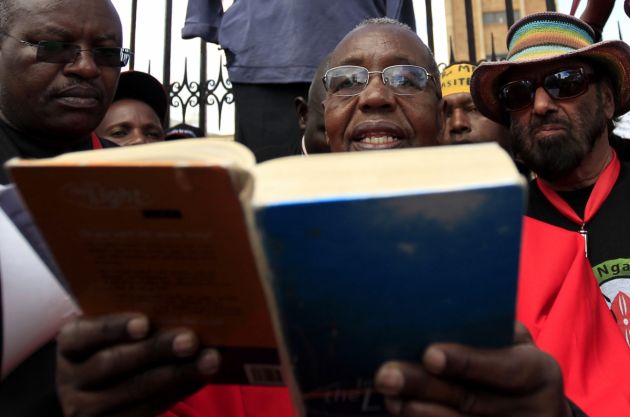Kenya's Evangelical and Pentecostal churches reject Religious Organisations Bill, 2024

The Evangelical Alliance of Kenya (EAK) has joined other religious leaders, including the Pentecostal Voice of Kenya (PVK), in rejecting the Religious Organisations Bill, 2024, proposed by a former assistant minister, Senator Danson Mungatana.
The bill seeks to introduce taxes on income, gifts, or profits generated from churches, but it has been termed punitive, and its critics say it is being introduced without proper stakeholder consultation with clergy members, Citizen Digital reported on Sept. 25.
"The move to table the bill took religious leaders and organizations by surprise, particularly coming after the finalization of the work of the Presidential Taskforce on the Review of the Legal and Regulatory Framework Governing Religious Organizations in Kenya," said EAK Chair Bishop Philip Kitoto.
The Pentecostal Voice of Kena (PVK) has also raised serious concerns about the proposed Religious Organizations Bill 2024, commonly referred to as the Mungatana Bill, arguing that its passage would significantly cripple church operations.
The EAK chair acknowledged that religious groups have been infiltrated by rogue individuals abusing various platforms and misleading congregations toward extremism, but noted that the church has been at the forefront of nation-building.
"Religious organizations have played a critical role in shaping Kenya's social and economic landscape. They complement the work of the government in peacebuilding, providing services in the health, education, and hospitality sectors," he said.
Kitoto's sentiments were echoed by EAK Secretary General Reverend Kepha Nyandega.
'RELGIOUS LEADERS NOT INVOLVED'
"The Bill contravenes fundamental constitutional principles enshrined in Article 10, specifically the provision on public participation. Key stakeholders among them religious leaders were not involved in the development of the Bill," he said.
"The Mungatana Bill fails to appreciate the importance of the critical qualification for the Proposed Registrar, particularly in religious or theological qualifications as a prerequisite."
EAK is the national umbrella organization for evangelical churches in Kenya.
The Mungatana Bill proposes a minimum fine of 5 million Kenyan shillings (around US$39,000), three years in jail, or both for any religious leader who operates an unregistered organization.
Pentecostal Voice of Kenya (PVK) members on Sept. 22 voiced their discontent with specific clauses in the proposed legislation. After reviewing the bill, church leaders identified several regressive provisions threatening the freedom of worship guaranteed by Article 32 of Kenya's 2010 Constitution.
They argue that the bill aims to criminalize the preaching of the gospel by imposing maximum penalties of up to Kes. 10 million or imprisonment for up to five years, or both, Nairobi Wire reported on Sept 24.
This would restrict individuals from freely preaching on radio and television or conducting crusades.
Furthermore, the leaders stated that the bill seeks to grant counties the authority to manage and interfere in the internal affairs of churches. They contend this provision would enable politicians to intrude into church matters and intimidate pastors who address governance issues.